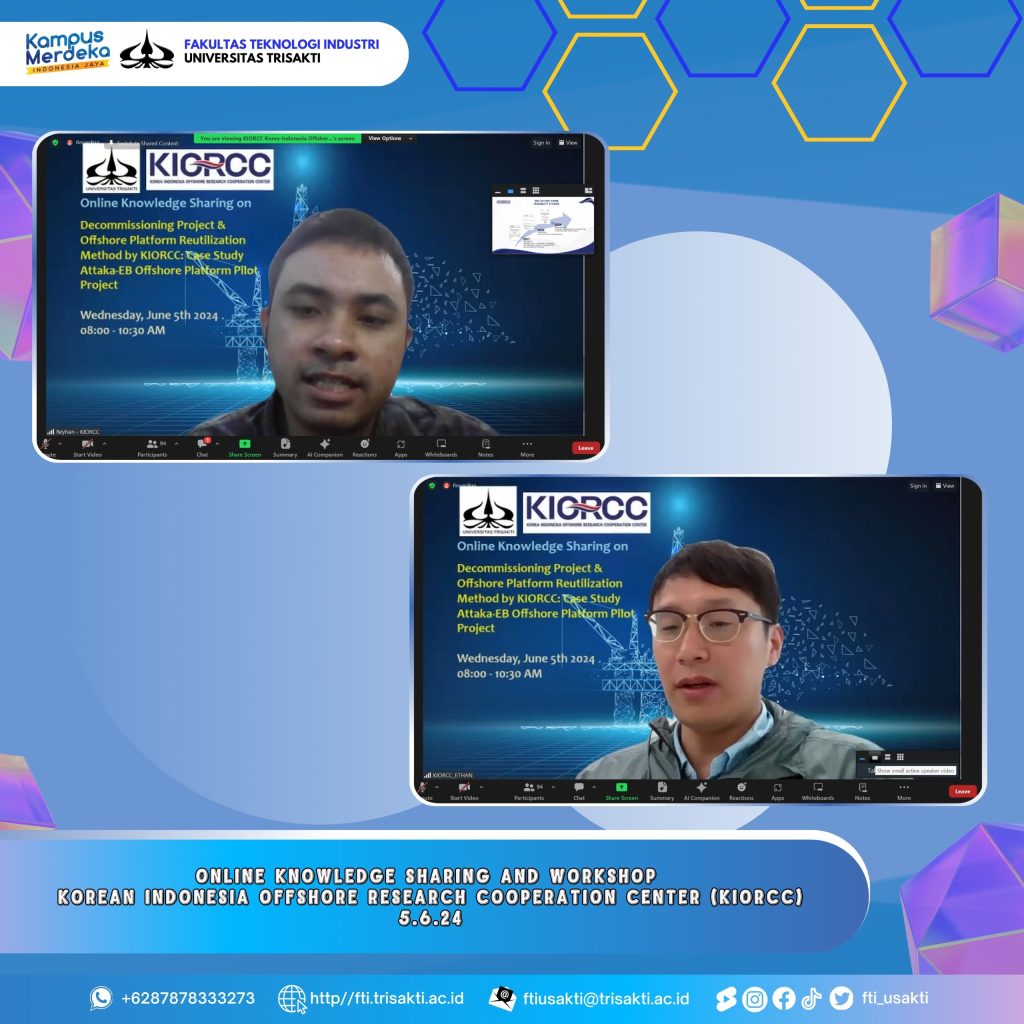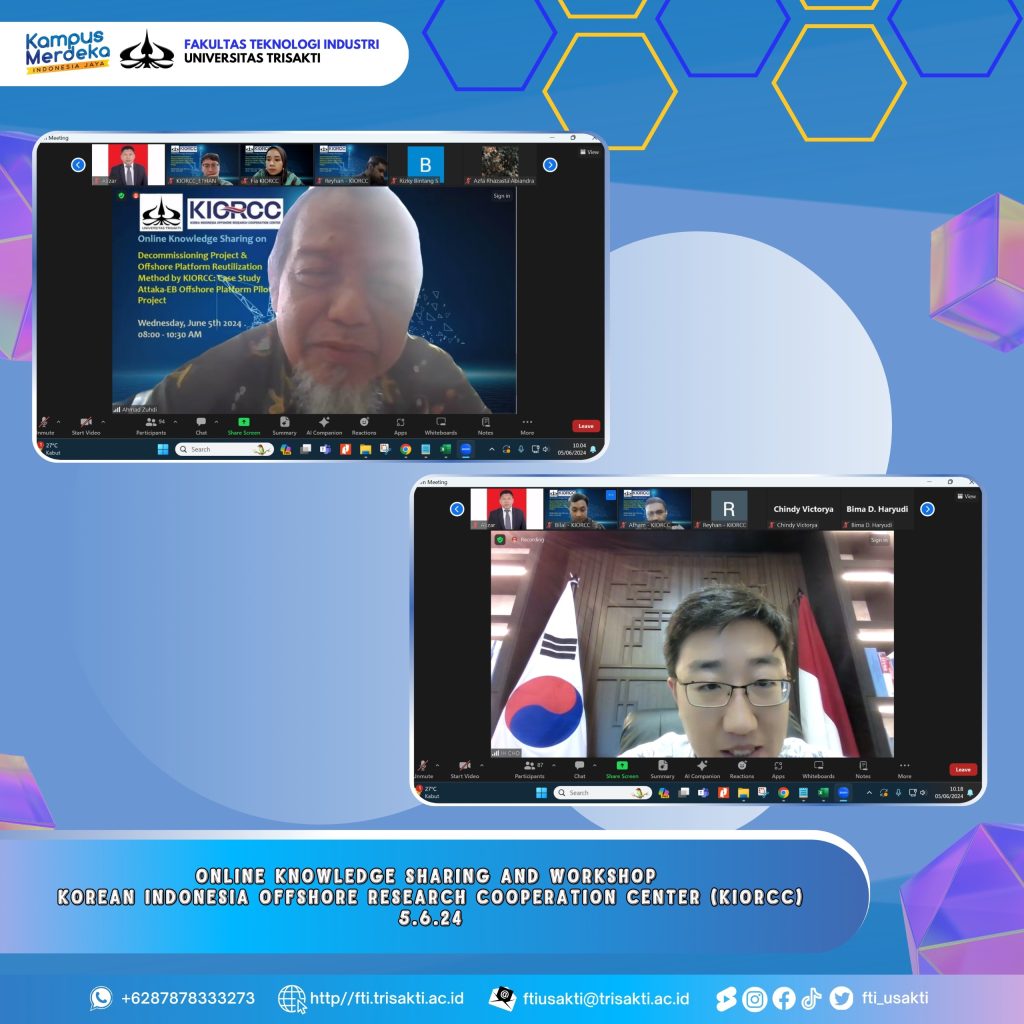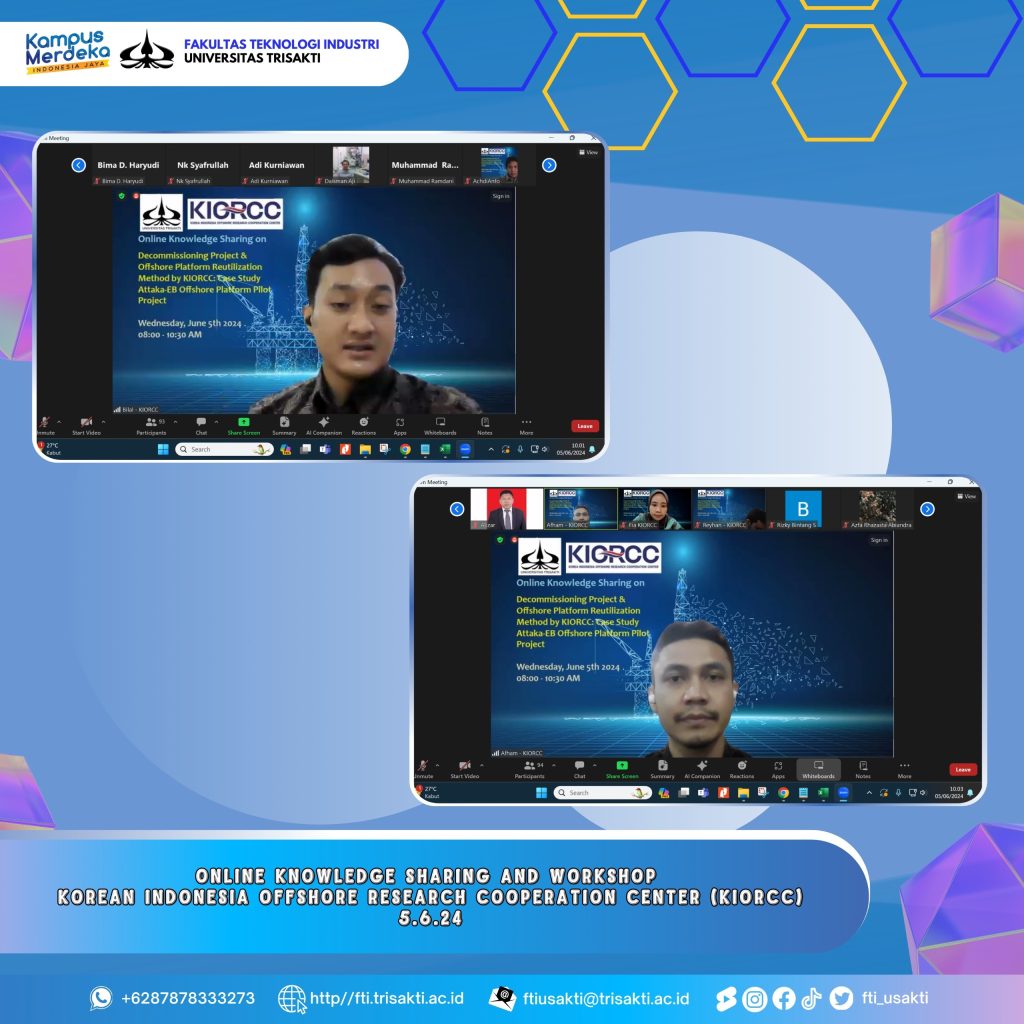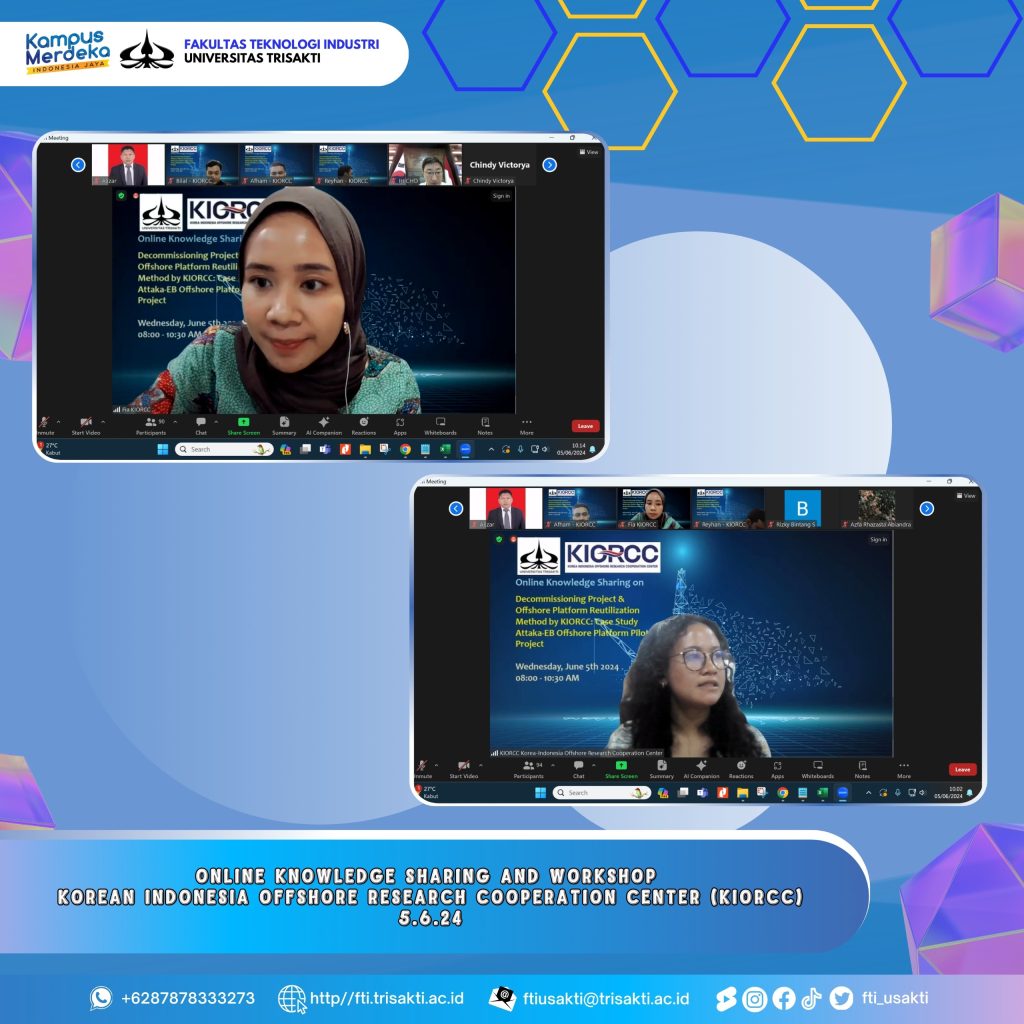Contact Us
- JL. Kyai Tapa No. 1 Grogol
- Jakarta Barat, Indonesia
- Phone:
- (62-21) 566 3232
- Whatsapp:
- (+62) 882 194 856 74
- (+62) 877 707 077 03
- Fax: (62-21) 564 4270
- Email: humas@trisakti.ac.id
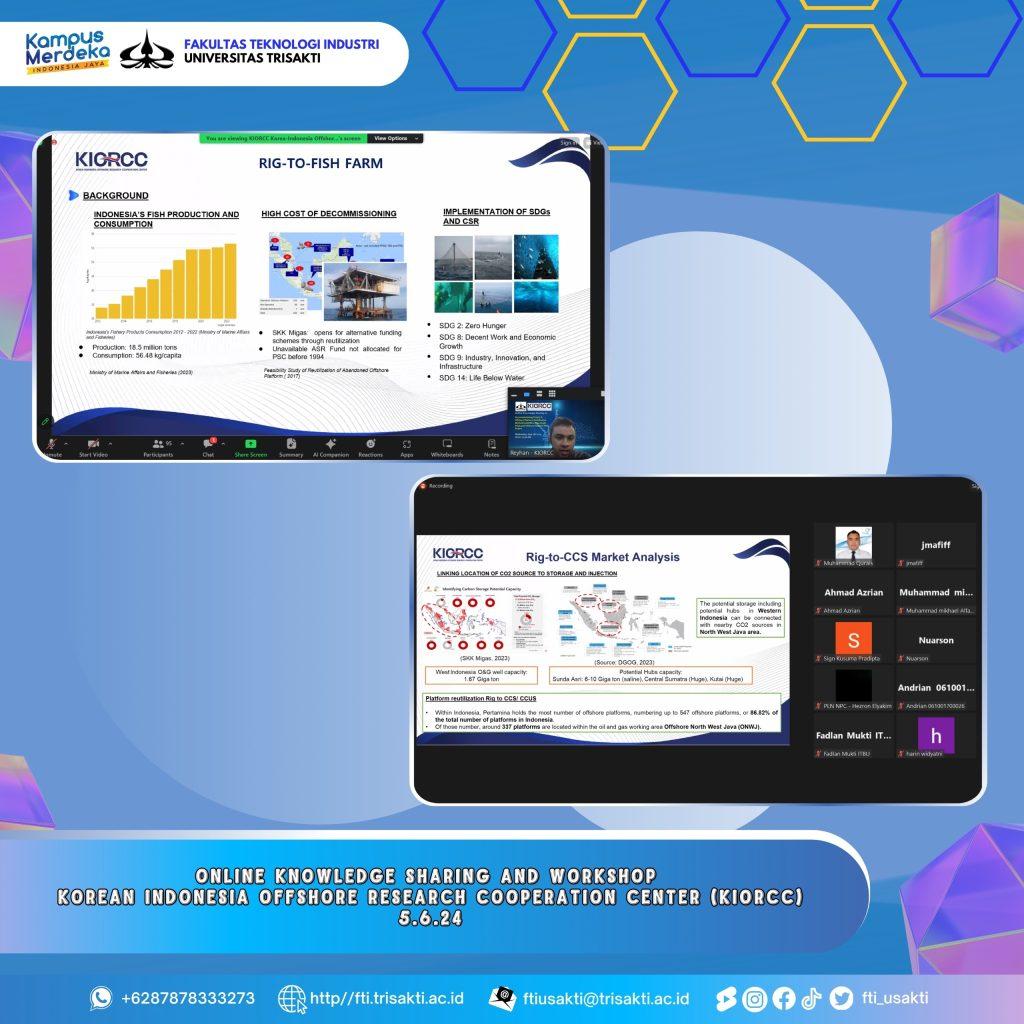
Following up on the cooperation agreement signed by the Rector of Usakti with the Director of Korea Maritime and Ocean University Consortium (KMOUC) from Busan, South Korea, February 17, 2024. Usakti’s cooperation with has been formalized and implemented through KIORCC (Korea Indonesia Offshore Research and Cooperation Center). One of the activities that have been carried out is: Knowledge Sharing & Workshop on Decommissioning Project & Offshore Platform Reutilization Method by KIORCC: Case Study Attaka-EB Offshore Platform Pilot Project, Wednesday, June 5, 2024, 08:00 – 10:30 WIB, which was held online.
The workshop was attended by 107 participants, consisting of students (S1, S2 and S3) and lecturers and alumni of Trisakti University, especially from the Faculty of Industrial Technology, Faculty of Civil Engineering and Planning, and Faculty of Earth and Energy Technology, as well as the Faculty of Landscape Architecture and Environmental Technology. In the knowledge & Expert Sharing event, which was given by 5 researchers from KIORCC, namely 1. Choi Hyeon Cheol, Senior Researcher (from KMOUC), 2. Mohammad Bilal Nuraziz (KIORCC Researcher), 3. Afham Kilmi (KIORCC Researcher), 4. Reyhan Ammar (KIORCC Researcher) and 5. Alia Yasmin Arif (KIORCC Researcher).
The material presented concerns post-production rig or platform facilities from the oil and gas industry, which need to be re-engineered or repurposed, so as not to cause traffic problems in maritime waters and pollution, as well as other hazards. The transfer of rig function varies greatly, depending on its economic and strategic value, among others:
It is hoped that this cooperation can bring benefits to both parties and continue to be improved in the future.
